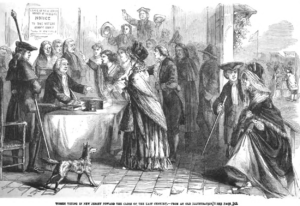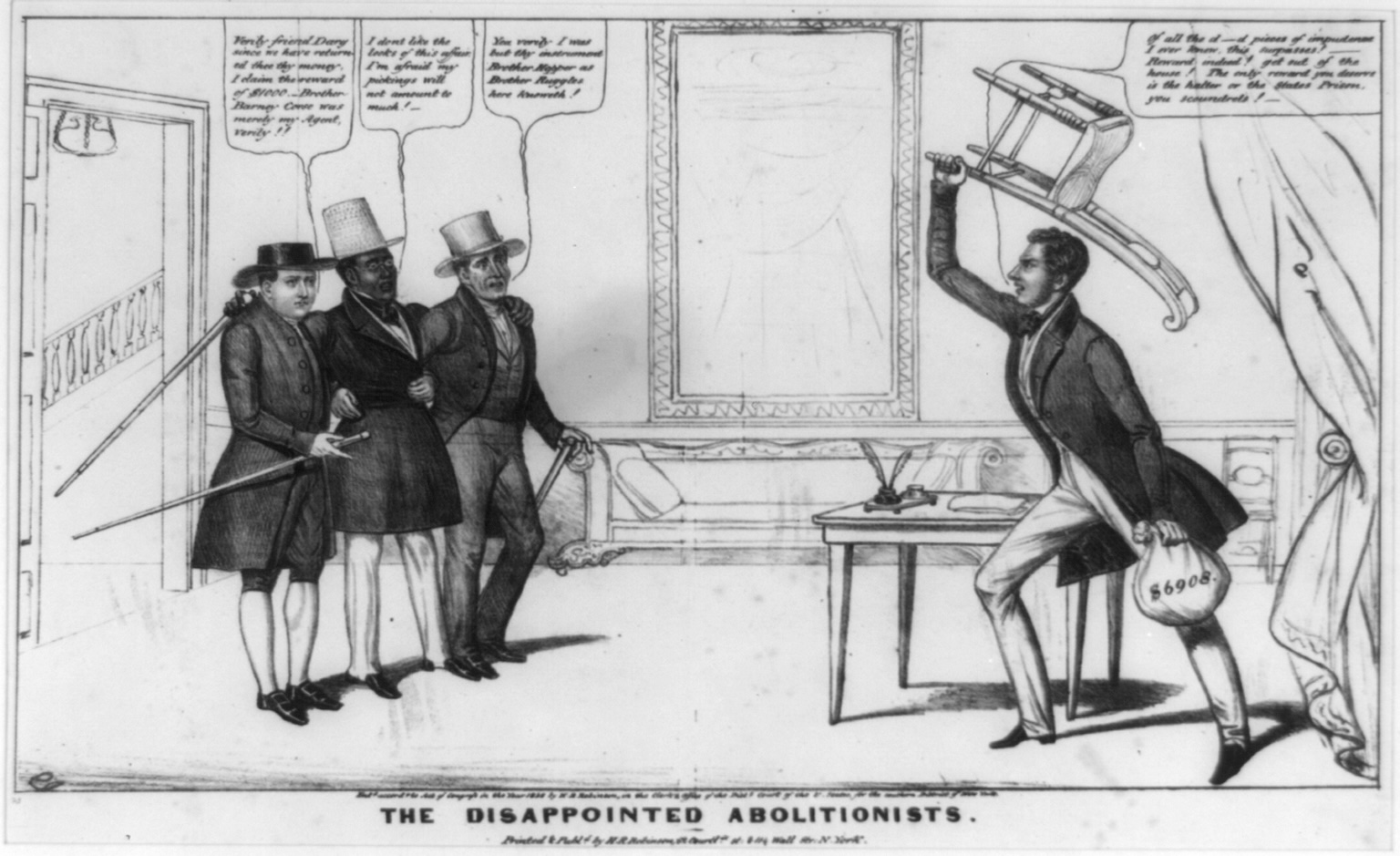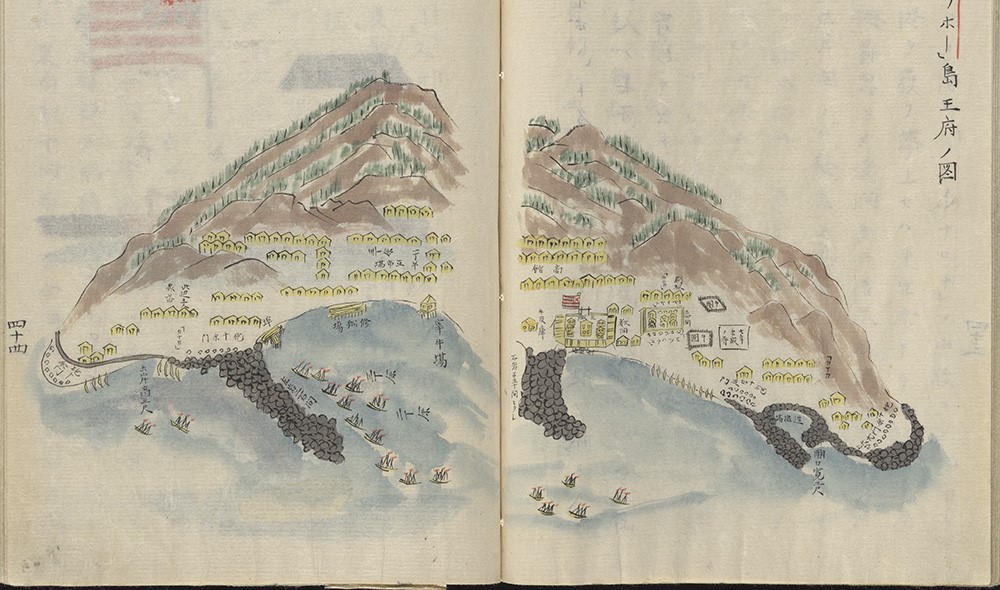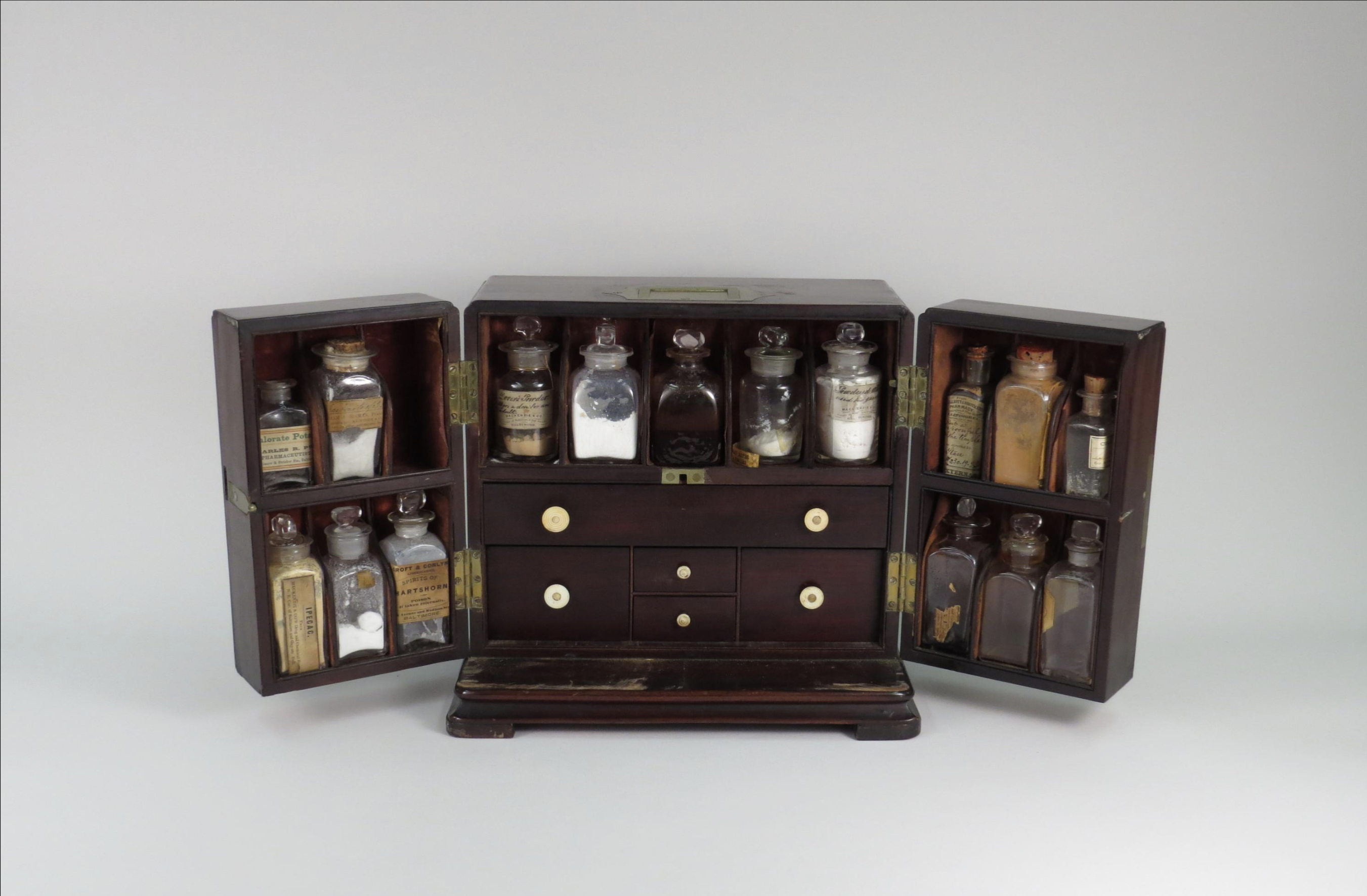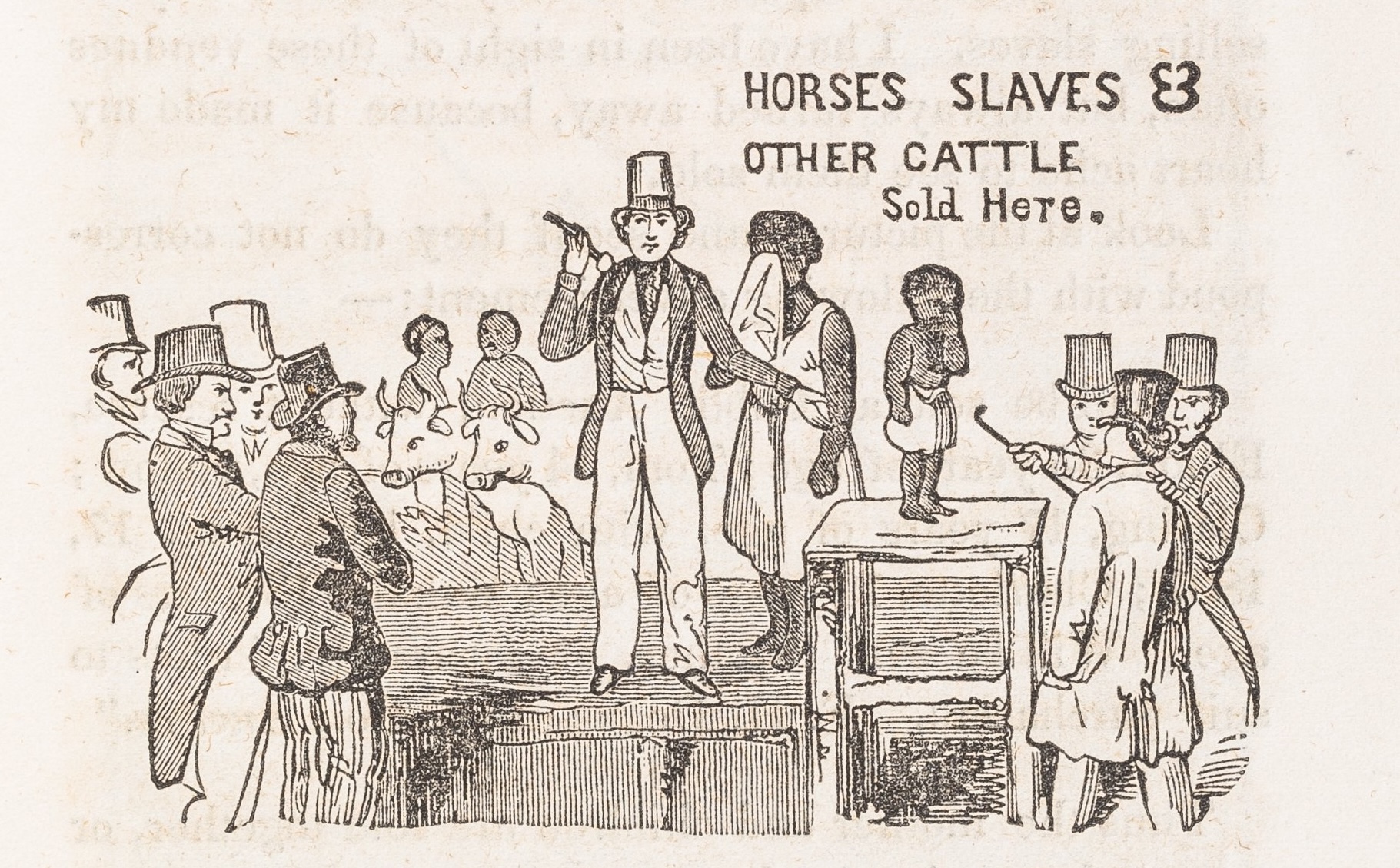Recent charges against the Association of Community Organizations for Reform Now (ACORN) for registering nonexistent voters have raised the specter that the 2008 election will be marred by voter fraud. But as anyone who has studied American history knows, voter fraud—and allegations of corruption—are as old as the republic itself. The more closely contested the race, the likelier the possibility of fraud and the accusations of fraud.
This was certainly true in early New Jersey, which had one of the most divisive, yet dynamic, political environments of the early national period. Like many other states in post-revolutionary America, New Jersey required that citizens, in order to vote, must possess a certain amount of property—50 pounds, to be precise. Yet unlike most other states, New Jersey also allowed free blacks who met the wealth requirement to vote. And alone among all the states at the time, New Jersey allowed qualified unmarried women (single women or widows) to cast ballots in local, state, and federal elections. Not surprisingly, such liberal voting provisions were highly controversial and subject to constant attack. Yet they remained in force in 1807 when the legislature limited voting to white males.
From a very early date, New Jersey, small though it was, was wracked by internal regional and religious divisions. These divisions translated into differing party loyalties, with Jefferson’s Democratic-Republicans gaining strength in the northern counties and Federalists acquiring a firm base in the southern region. Even within each county, local animosities were often quite fierce. In such a volatile situation, each side constantly attempted to secure every last vote in order to gain an edge in a given election.
This was, of course, an era long before formal voter registration procedures had been put in place, or even considered. Individuals would present themselves at the polling place and swear they had met the state’s particular voting requirements. Other individuals, or the election registrar, could challenge the voter’s qualifications if they had reason to suspect malfeasance. Nonetheless, most who presented themselves were allowed to vote. In fact, then as now, getting out the electorate was the main issue of concern. Commenting on the “indifference” of the New Jersey population to voting, Polish visitor Julian Ursin Niemcewicz observed in 1797, “As long as their purse is respected, as long as one does not overwhelm them neither with taxes nor with onerous duties, it worries them little by whom and how they are governed.”
As each party vied for dominance in the state, every vote counted. Getting voters to turn out required a major effort. Supporters would go from house to house to rally potential voters and give them carriage rides to the polls, which often might be located miles away over dusty roads. Because of the high property qualification and the exclusion of married women, the number of eligible female voters was always relatively small, probably in the hundreds in any given election. Nevertheless, they loomed large in the minds of the opposition. In the heat of party conflicts, members charged that their opponents had taken sexual advantage of the women whom they accompanied to the polls. Others suggested that the women had been coached about their choice of candidates. Still others maintained that the women had been physically coerced into voting. In 1803, New Brunswick Federalists were accused of “rallying the petticoat electors and hurrying them and others to the polls.” In 1802, “whole wagon loads of the ‘privileged fair’” were said to have been brought to the places where ballots were cast.
The issue of women voting came to a head in 1807 during a hotly contested battle over the location of the new Essex County courthouse. Local voters were asked to choose between Newark and Elizabeth as the site for the new building. Heated propaganda spewed forth from both locales prior to the election. The election itself witnessed unprecedented voter turnout. Newark prevailed. However, supporters of the other site quickly challenged the result, pointing out that the number of ballots cast was three times larger than the eligible voter population. A legislative inquiry eventually uncovered massive voter fraud and voided the election.
The most important result, however, was to provide opponents of female suffrage with ammunition. In the next session of the assembly, legislators hurled charges and countercharges about corruption and fraudulent behavior at state elections. Much of the misbehavior, it was clear, came from white men who voted even though they were not qualified or who voted at different polling places more than once. The solution, however, focused on marginal populations: women, foreigners, and free blacks. Because women’s dress “favoured disguise,” it was said, some women “have repeated the vote without detection.” More generally, women, blacks, and foreigners had “no interest in the welfare of the state” and were “mere instruments of parties in the state, or the agents of executive designs, formed out of it.” Perhaps most frightening of all, if women, free blacks, or aliens could vote, they might also be able to serve in public office. Legislator John Condict saw this as a disaster in the making. “It cannot for a moment be supposed,” he said, “that the authors of the constitution meant to entrust the command of our army, and the direction of our state, either to women, to negroes, or to aliens.” Soon thereafter, the legislature passed a law confining the franchise to free, white males.
So voter fraud, or charges of voter fraud, have always been with us. What is most important, however, is to ensure that when fraud is suspected, only actual perpetrators of it are identified and punished, rather than symbolic representatives or voters whose suffrage rights happen to be vulnerable. In 1807 New Jersey, there was a real voter fraud problem that was seized on by Democratic-Republicans to suppress female Federalist votes. In 2008, there is little evidence that charges of voter fraud are anything but a modern GOP tactic to suppress Democratic votes. ACORN has only been found to have overstated the number of people it has registered to vote. Yet problems in voter registration do not necessarily translate into fraudulent votes. Election officials presumably have the ability to prevent ineligible voters from casting ballots.
Unlike the McCain campaign and other present-day Republicans, who are gearing up their voter suppression measures even as I write, the politicians of the Early Republic sometimes considered excessive voting totals only an index of popular interest in our elective government. As one commentator observed shortly after the courthouse debacle, “I believe [our electors] yet profess an ardent zeal for the cause of liberty, which neither artifice, menace or fraud, can remove.”
FURTHER READING:
On women’s political participation in the early American republic, see Catherine Allgor, Parlor Politics: In Which the Ladies of Washington Help Build a City and a Government (Charlottesville: University Press of Virginia, 2000); Catherine Allgor, A Perfect Union: Dolley Madison and the Creation of the American Nation (New York: Henry Holt, 2006); Paula Baker, “The Domestication of American Politics: Women and American Political Society, 1780-1920,” American Historical Review 89 (1984): 620-647; Susan Branson, These Fiery Frenchified Dames: Women and Political Culture in Early National Philadelphia (Philadelphia: University of Pennsylvania Press, 2001); Linda K. Kerber, Women of the Republic: Intellect and Ideology in Revolutionary America (New York: Norton, 1986); Judith Apter Klinghoffer and Lois Elkis, “”The Petticoat Electors”: Women’s Suffrage In New Jersey, 1776-1807,” Journal of the Early Republic 12 (1992): 159-93; Jeffrey L. Pasley, Andrew W. Robertson, and David Waldstreicher, eds., Beyond the Founders: New Approaches to the Political History of the Early American Republic (Chapel Hill: University of North Carolina Press, 2004); Mary P. Ryan, Women in Public: Between Banners and Ballots, 1825-1880 (Baltimore: Johns Hopkins University Press, 1990); Elizabeth R. Varon, We Mean to Be Counted: White Women and Politics in Antebellum Virginia (Chapel Hill: University of North Carolina Press, 1998); Rosemarie Zagarri, “Gender and the First Party System,” in Doron Ben-Atar and Barbara B. Oberg, eds., Federalists Reconsidered (Charlottesville: University Press of Virginia, 1998), 118-134; Rosemarie Zagarri, Revolutionary Backlash: Women and Politics in the Early American Republic (Philadelphia: University of Pennsylvania Press, 2007); Ronald J. Zboray and Mary Saracino Zboray, “Political News and Female Readership in Antebellum Boston and Its Region,” Journalism History 22 (1996): 2-14; Ronald J. Zboray and Mary Saracino Zboray, “Whig Women, Politics, and Culture in the Campaign Of 1840: Three Perspectives From Massachusetts.,” Journal of the Early Republic 17 (1997): 277-315. For the larger political context of the New Jersey situation, still helpful is Carl E. Prince, New Jersey’s Jeffersonian Republicans: The Genesis of an Early Party Machine, 1789-1817 (Chapel Hill: University of North Carolina Press for the Institute of Early American History and Culture, 1967).
This article originally appeared in issue 9.1 (October, 2008).
[BLOGITORIAL NOTE: I asked Prof. Rosemarie Zagarri, author of Revolutionary Backlash: Women and Politics in the Early American Republic (Philadelphia: University of Pennsylvania Press, 2007), to post on a myth that she and a number of other scholars have already dispelled. The answer to the question posed above is still “mostly,” but there were wider forms of participation in the celebratory politics of the Early Republic and direct participation for some wealthier women and African Americans because of property requirements for suffrage rights. New Jersey is the famous case of this. Zagarri’s post indirectly answers my question, but goes it one better by also drawing an up-to-the-minute parallel between the politics of Jefferson-era New Jersey and the current election cycle. In both cases, the prospect of new or unusual numbers of voters led to charges of voter fraud.– JLP]



